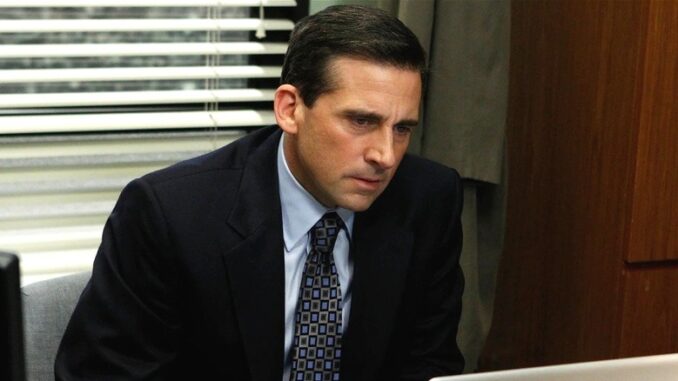
The news landed like a collective gasp across the internet, a discordant note in the otherwise harmonious symphony of Dunder Mifflin paper sales. Steve Carell, the comedic titan whose portrayal of Michael Scott had anchored The Office for seven seasons, was leaving. The initial reports, often distilled to sensational headlines, pointed fingers at contract negotiations, a simple failure to agree on terms. But to truly understand Steve Carell’s departure from the Scranton branch, one must peel back the layers of public perception and financial figures, revealing a confluence of artistic, professional, and deeply personal reasons that made his exit not just inevitable, but perhaps, necessary.
On the surface, the narrative seemed straightforward: money. NBC, reportedly, offered a sum, Carell’s representatives countered, and a chasm opened, too wide to bridge. This explanation, while partially true, serves as a convenient scapegoat, simplifying a complex decision. Carell himself, years later, would hint at a more nuanced reality, suggesting that the network’s perceived lack of enthusiasm for retaining him was as significant as any specific dollar amount. It wasn't merely about the numbers; it was about the feeling behind them, the subtle implication that perhaps his indispensable status wasn't as universally acknowledged as he might have hoped. In the high-stakes game of network television, a lack of aggressive pursuit can feel as dismissive as a lowball offer, signaling a natural end to a very successful, but perhaps creatively finite, run.
Beyond the negotiation table, however, lay the expansive landscape of Steve Carell’s burgeoning film career. While playing Michael Scott, Carell had transformed from a beloved comedic actor into a bona fide movie star. The 40-Year-Old Virgin, Anchorman, Despicable Me, Dinner for Schmucks – these blockbusters were not just commercial successes; they showcased his versatility and immense box office draw. Juggling the relentless demands of a network sitcom, with its nine-month shooting schedule and 12-14 hour days, alongside an exploding film career was becoming increasingly untenable. It was a classic case of an actor outgrowing the confines of a single, albeit iconic, role. The gravitational pull of Hollywood, with its diverse scripts and challenging characters, offered a creative freedom and artistic exploration that even the most beloved television show could not match. To stay tethered to The Office would have meant sacrificing significant film opportunities, potentially stagnating a career that was clearly on an upward trajectory.
Crucially, Carell's departure was also driven by a profound sense of artistic completion for Michael Scott. Michael, the world’s best boss (in his own mind), the lovable but bumbling regional manager, had evolved significantly over seven seasons. From the cringe-inducing, oblivious boss of early seasons to the man who finally found true love and a semblance of maturity with Holly Flax, Michael’s arc had reached a satisfying, almost perfect, crescendo. To continue the character beyond this point risked creative stagnation, or worse, dilution of what made him special. Michael had learned, grown, and achieved a personal fulfillment that was deeply resonant. Carell, known for his thoughtful approach to his craft, understood this. He didn't want to milk the character for longevity's sake, but rather to allow Michael to exit on a high note, preserving his legacy. His final episode, where Michael quietly sheds his microphone and walks away, a poignant, un-Michael-like farewell, underscored this artistic integrity. It was not a grandstanding exit, but a respectful bow out, signifying that the story had been told.
Ultimately, Steve Carell’s decision to walk away from The Office was not a single, dramatic declaration but a convergence of practical realities, professional ambition, and artistic conscience. It was the natural progression of an actor who had poured his heart into a character, watched his career explode, and recognized that both he and Michael Scott had reached a natural turning point. While his absence left an undeniable void, and The Office certainly transformed in his wake, his departure allowed him to explore new creative avenues and, perhaps most importantly, allowed Michael Scott to exit gracefully, leaving behind a legacy that remains untarnished by overstaying his welcome. The real reason, then, was not a single misstep in negotiations, but a thoughtful, multi-faceted choice that honored his career, his art, and the indelible character he helped create.